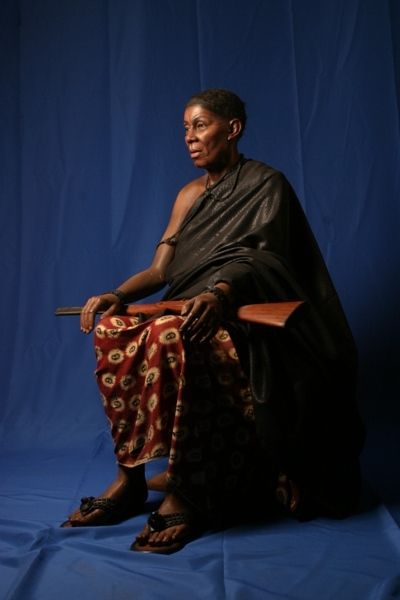In the heart of Ghana’s democratic landscape lies an enduring institution that has stood the test of time: chieftaincy. Despite the rise of modern political systems, chiefs and traditional councils continue to play a crucial role in governance, cultural preservation, and community development.
For many Ghanaians, the chieftaincy institution represents more than ceremonial tradition—it’s the backbone of identity, unity, and order.
In this article, we explore how chiefs and traditional councils remain vital in modern Ghana, the powers they wield, and how they influence both rural and urban life.
Who Is a Chief in Ghana?
A chief, or traditional ruler, is a recognized custodian of a specific community or ethnic group. Chiefs are not elected through the ballot box but are instead chosen through lineage, customs, and the approval of a kingmaker or family head.
Their authority comes from customary law and ancestral lineage, and in many cases, their installment is marked by elaborate traditional ceremonies.
The Role of Traditional Councils
Every chief belongs to a traditional council, a body made up of elders, sub-chiefs, queen mothers, and linguists. These councils serve as the chief’s advisors and often double as customary courts and local development authorities.
Together, they govern matters related to:
- Land ownership and disputes
- Cultural celebrations and rites
- Local conflict resolution
- Customary law enforcement
- Development decisions (schools, roads, sanitation, etc.)
Traditional Authority vs Modern Government
Ghana operates a dual governance system where traditional leaders coexist with elected officials such as Members of Parliament (MPs), Municipal Chief Executives (MCEs), and Assembly Members.
However, these traditional leaders still command enormous respect and influence, particularly in rural communities.
“No development project starts without consulting the chief”—a saying that remains true across many Ghanaian towns.
Constitutional Recognition
Under the 1992 Constitution of Ghana, the chieftaincy institution is protected. The National House of Chiefs, along with Regional and Traditional Houses of Chiefs, formalizes the structure of traditional governance.
Article 270 of the Constitution ensures:
- Independence of chiefs from partisan politics
- Respect for traditional customs and laws
- State recognition of chieftaincy as part of governance
Real-World Roles of Chiefs in Modern Ghana
1. Land Administration
- Chiefs act as custodians of stool lands, and play a key role in land allocation and lease negotiations.
- Town planning, real estate, and agriculture often go through traditional authorities before official processes begin.
2. Conflict Resolution
- Chiefs often settle marriage, inheritance, and land disputes using customary laws.
- Their decisions are generally faster, culturally relevant, and less costly than court processes.
3. Cultural Preservation
- Chiefs organize festivals, enforce taboos, and uphold rituals that preserve local heritage.
- Festivals like Homowo, Aboakyir, and Kundum are spearheaded by traditional leaders.
🔗 Related: Ghanaian Traditions Still Practiced Today
4. Development Advocacy
- Chiefs often lobby for roads, hospitals, schools, and sanitation facilities for their communities.
- Some even lead fundraising efforts or donate family land for projects.
5. Tourism and Cultural Identity
- Palace visits, durbars, and enstoolment ceremonies attract tourists and boost local economies.
- Chiefs act as cultural ambassadors, wearing symbolic regalia like Kente, gold ornaments, and carrying linguist staffs.
The Role of Queen Mothers
Often overlooked, queen mothers play a crucial role in decision-making, especially in matrilineal societies like the Akan. They:
- Nominate successors to the stool
- Counsel the chief
- Represent women’s interests
- Lead social welfare programs
Regional Examples of Chiefly Influence
| Region | Influence of Chiefs |
|---|---|
| Ashanti Region | Otumfuo Osei Tutu II oversees land issues and national dialogue |
| Northern Region | Chiefs mediate inter-ethnic conflicts and champion peace efforts |
| Volta Region | Promote eco-tourism and sacred festivals like Hogbetsotso |
| Greater Accra | Ga Mantse leads Homowo festival and community land negotiations |
Challenges Facing the Chieftaincy Institution
While still relevant, traditional leadership in Ghana is not without its challenges:
- Chieftaincy disputes delay development and divide communities.
- Lack of funding limits their impact on projects.
- Modern politics and urbanization are slowly reducing their influence in big cities.
The Future of Chiefs in Ghana
Traditional leaders must adapt to modern governance, technology, and youth interests. Some are already doing so:
- Using social media to communicate with citizens
- Collaborating with NGOs on education and healthcare projects
- Speaking out on climate change, youth unemployment, and national unity
Chiefs in Ghana are not relics of the past. They’re living institutions with deep community roots and growing influence in national discourse.
By combining tradition with innovation, Ghana’s chiefs and traditional councils are proving that leadership isn’t only about politics—it’s also about culture, wisdom, and service.

